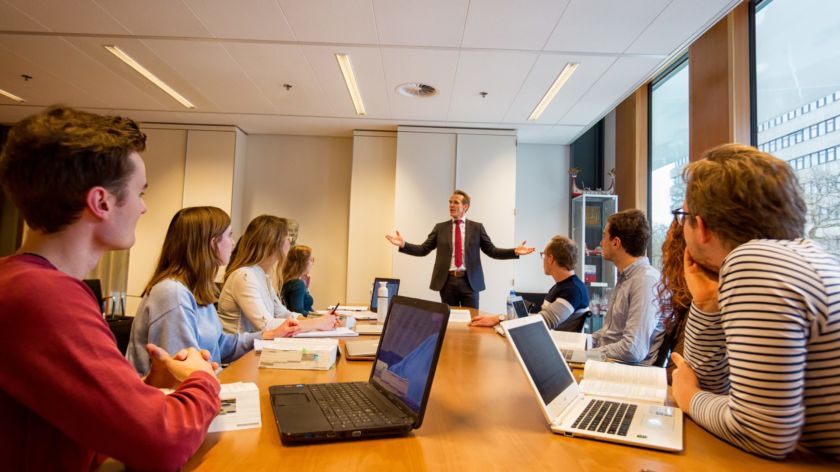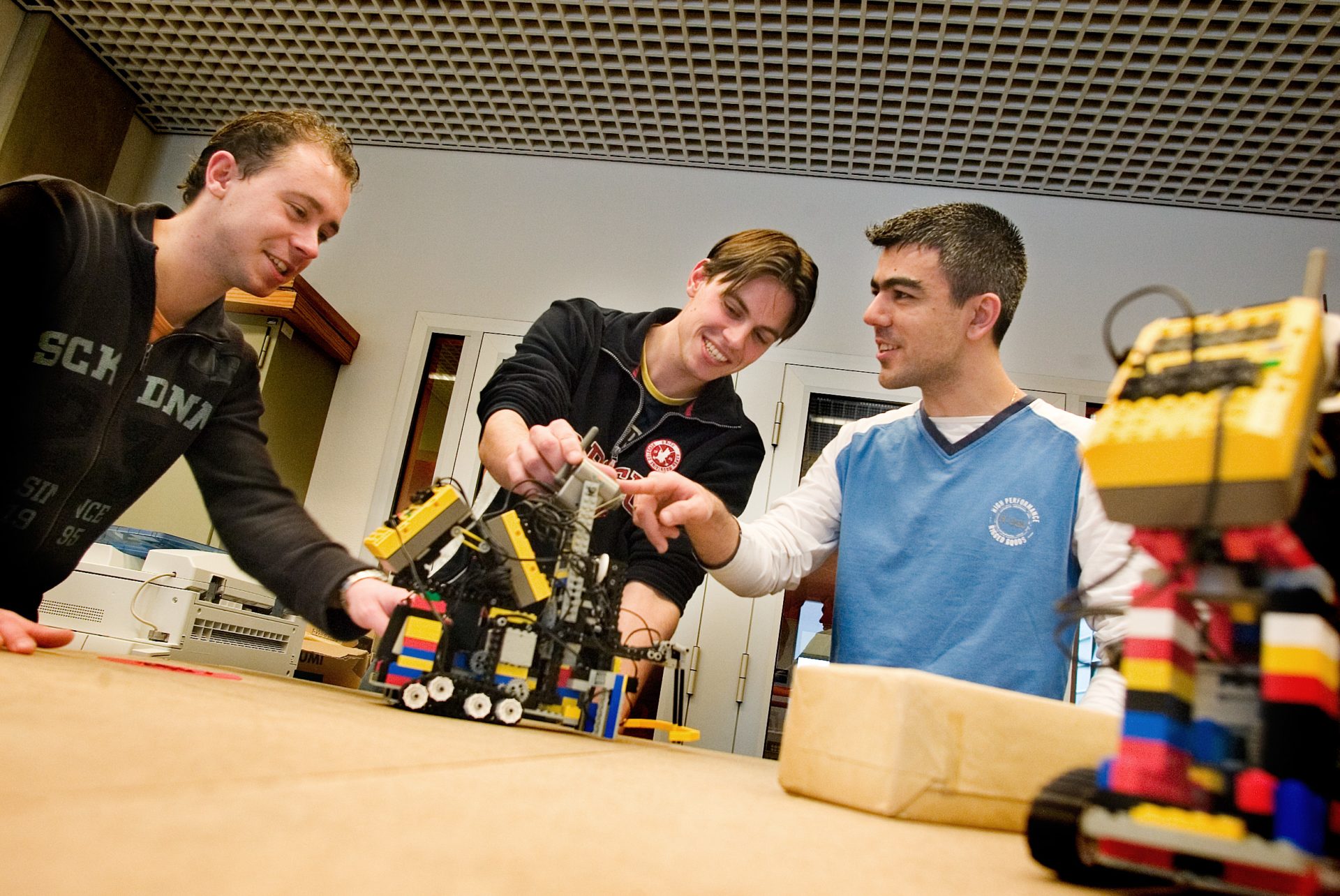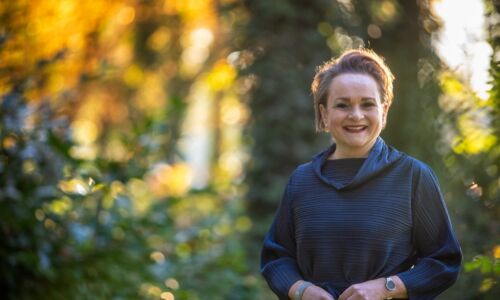In these study programmes, attention towards sustainability comes naturally
-
 A lecture at the faculty of law. Photography: Dick van Aalst
A lecture at the faculty of law. Photography: Dick van Aalst
Whether you study biology or pedagogics, every student at Radboud University has to be educated on sustainability. How do study programmes deal with this? The study programmes for law and artificial intelligence have been seeing a growing interest in sustainability for a while now. ‘Who owns a wind turbine? That is a legal question.’
Law programme: ‘Impact Day forces us to reflect’
Anyone who wants to learn everything about sustainability decides to study biology or environmental sciences, one might think. Still, law students cannot avoid topics on sustainability either. ‘Take for example the Urgenda verdict,’ says Vincent van Hoof, vice dean of education at the Faculty of Law. ‘We pay much needed attention to it in our education: it shows that the government can also be held accountable when it comes to certain targets meant to combat climate change.’
Impact Day
Half a year ago, all eyes were focused on Radboud University’s ‘Impact Day’. Every student in Nijmegen will receive education on sustainability, the university announced. But how? ‘We don’t want a mandatory course about sustainability for all students, then it becomes an obligation,’ says programme director Marije Klomp in this article.
Another example: sustainable entrepreneurship. ‘Large companies are increasingly thinking: what are we on earth for? More and more often, they have the objective of creating a better, more inclusive world. How does that translate into law?’
Sustainability is a social theme that has already found its way into education, says Marnix Snel, director of education. If you look at the Sustainable Development Goals (SDGs) of the United Nations, then, according to Snel, ‘a substantial part’ of them coincides with the education that law students receive. ‘A number of those goals relate to human rights, for which there is naturally a lot of attention in law education. But also within a course in labour law, for instance, attention is paid to a theme such as gender equality on the work floor.’
‘Society has questions on sustainable topics that we can answer’
Van Hoof and Snel consider the fact that the Executive Board has put sustainability in education high on the agenda a nice step that fits in well with the university. But whether this will change education? Van Hoof: ‘We offer education on sustainable issues because society has questions that we can answer. You can place a wind turbine on land, but also on a floating pontoon in the sea. Whose property is it then? That is a legal question.’
What the sustainability programme and the accompanying Radboud Impact Day have in any case achieved is that the faculty is reconsidering its own educational offering. ‘It forces us to reflect’, says Van Hoof. The conclusion may well be, says the vice dean, that the faculty can still strengthen itself in some areas. But across the board ‘we are already doing very well with sustainability’.
Artificial intelligence programme: ‘We are ahead when it comes to sustainability’.
Within the programme for artificial intelligence, sustainability plays a ‘crucial role’, says programme director John Kwisthout. Companies that use artificial intelligence try to mimic the way the brain works with computer systems. This often requires a great deal of computing power and therefore energy.
This realisation is starting to permeate more and more within the field. Kwisthout: ‘You can ask yourself whether chip manufacturers are not focusing too much on becoming faster and producing a higher quantity instead of manufacturing the same product using less energy.’
‘Artificial intelligence could potentially be dangerous – we pay attention to this in our education’
At the same time, artificial intelligence can also help to reduce energy consumption. For example, by planning and predicting the energy needs of complex systems: with greater certainty of use, smaller margins can be maintained without causing shortages.

All these subjects are covered extensively within the artificial intelligence programme, Kwisthout says. This starts in the bachelor’s programme, and those who are looking for a more in-depth approach depth afterwards can, from the academic year 2023-24, also register for the master’s course Sustainable AI, which is currently being developed.
Kwisthout does not want to sound immodest, but he does dare to say that his study programme is ‘leading’ in the field of sustainability in education. This is the result of choices made in the past, not so much because of the university programme on sustainability or Impact Day.
Especially if you consider sustainability to include diversity and justice, as the UN does in its SDGs. Kwisthout: ‘We have been busy with that theme for years. After all, artificial intelligence could potentially be dangerous in that area – it is important to pay attention to it in our education, for example in a course about ethics.’
Kwisthout gives an example: authorities can use artificial intelligence to predict which neighbourhoods will have above-average criminal behaviour, for example by looking at factors such as poverty. ‘The police could respond to this by deploying more units in those areas’. The result: more crime will be noticed, and the neighbourhood will get an increasingly negative stigma. ‘Artificial intelligence is not free of prejudice,’ Kwisthout concludes.



